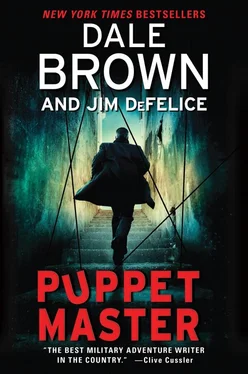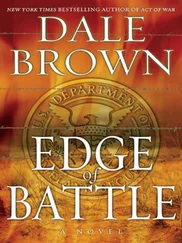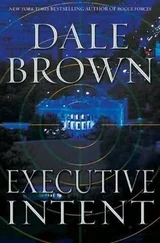If not, I’ll take what comes.
Boston — about the same time
Borya glanced at the clock on the kitchen wall. She was pretending to work on an essay on King Lear , her last remaining homework for the weekend. Martyak was inside talking on her cell phone to some dweeb; thank God for that, Borya thought, because otherwise she would be hovering over her at the table. The babysitter was making an effort to be friendly; she had even offered the night before to help her with her homework. But her help was worse than useless; she had an impossible interpretation of King Lear : a metaphoric statement about why war is hard on families. And even Borya could tell her spelling was atrocious.
Borya’s father always called at certain intervals when he was gone, generally at 5:00 p.m. He was due to call tonight, but the hour had passed without a call.
That wasn’t necessarily unusual, but Borya found herself missing him, and anxious to hear his voice. That was the strange thing about their relationship: when he was here, she couldn’t stand the way he was on her, always around, snooping, checking up on her. But when he was gone, she missed him dearly. She thought of things they might do, like getting ice cream, or maybe going to the movies.
Not that he knew much about movies. But at least most times he would let her pick them. So it wouldn’t matter if he fell asleep in the theater, which he often did.
“How’s it going in there?” asked Martyak from the den.
“Slow.”
“Has your father checked in yet?”
“No.”
“No text?”
“He doesn’t usually text when he’s away. He calls.”
“Did he call?”
“No.”
“He said he would. Tonight.” Martyak came into the kitchen. Her jeans were at least two sizes too small, a look that did nothing for her. Her lumpy sweatshirt was something an old lady would wear. The guy she was dating must be half blind.
“You think he’s OK?” asked Martyak.
“My dad is always OK,” shot Borya.
“I’m just saying, he forgot to call. Maybe you should call him.”
“I don’t have his number.”
That was a lie so blatant that Borya couldn’t imagine why she had even said it. But the words were out there, and she couldn’t take them back.
“Well I have it,” said Martyak. She went back inside and got her cell phone.
“Here, I’ll call,” said Borya, picking up her own.
“Are you calling his overseas phone, or his domestic?” asked Martyak.
Domestic is such a weird word.
“Whichever one he answers,” said Borya.
“I’m calling his sat phone.” Martyak already had it dialed in.
Go ahead, thought Borya. Her father never answered that line; his regular phone nearly always worked in whatever country he was in.
Borya called the cell. But it went to voice mail after four rings.
“Hey, Daddy,” she said. “The babysitter is getting nervous because you haven’t called. I told her everything is fine. But, you know how girls are. I love you.”
She hung up.
“It says leave a message.” Martyak held up the phone, as if to show her.
“So? Leave one.”
“Mr. Tolevi, we were just checking in,” said Martyak. “Everything is fine here. We’re working on an essay on King Lear .”
Borya rolled her eyes.
“Hope to talk to you soon,” said Martyak, hanging up.
Borya and her father had a code — if she called on the sat phone, he would realize she really needed to talk to him, and he would call her right back from his cell. She figured the code would hold up even if it was the babysitter who called. She went over to the refrigerator, phone in hand, and got out some soda.
“I’m sure he’s fine,” said Martyak.
“That’s what I said.”
“Still working on Lear ?”
“Uh-huh.”
“Want help?”
“Nope.”
“Goneril is my favorite character.”
She would be, thought Borya, staring at the computer screen.
Ten minutes passed. Fifteen. A half hour.
Really, Dad, what are you doing that’s more important than me?
Boston — about the same time
“I hear you turned Johnny Givens down for a job,” said Chelsea, greeting Louis Massina when he walked into her office. “How come?”
“I didn’t turn him down. I told him there’d be a job for him when he got better. He still has a long way to go.”
“He didn’t hear that part,” said Chelsea. “The only part he heard was no .”
“That’s not my fault.”
“You know, Lou, you can be kind of, well, deaf sometimes. To other people’s emotions.”
Massina frowned. “Best to be direct in the long run,” he told her. “People appreciate you being honest.”
“Honest and blunt are different.”
“I wasn’t blunt.” Massina brushed his hand, tired of the argument. “What’s new with our ATM project?”
“It was an application layer attack on the local machines,” said Chelsea. “The solution isn’t difficult — it’s just fixing old code. But that’ll still be patchwork. I have a better system. I just need to test it.”
“Marketable?”
“Absolutely. The whole ATM system is ridiculous,” continued Chelsea. “It’s 1970s tech. I mean like, forget it.”
“Put together a task line and get ready to hand it off. I want you back on Peter. Las Vegas is coming up, and we need him ready.”
“You’re going to demonstrate him at a consumer show?”
“Why not?”
“You want to go into mass production?”
“Eventually.” Massina’s real goal was to kick a little sand into the eyes of a competitor who had just pulled out of the show. The bot was at least a year from any sort of regular production and even then it would be far too expensive for anyone but the most deep-pocketed company or the government to buy. But some wows from the media would look good in the marketing material.
“I talked to Flores, at the FBI, last night,” Chelsea added as he was about to leave. “He was trying to pump me for information on the girl.”
“Last night?”
“He made it look like a date.”
There was a wistful note in her voice.
Hmmmm, thought Massina. “What did he ask?”
“Nothing specific. But they’re definitely still working on the case, no matter what they told you.”
“If they want to cooperate, they should just come out and say that,” Massina told her. “You see? It’s best to be direct.”
“Should I tell Agent Jenkins that?”
“No. Let them come to us. Or me. You’re sure this girl is responsible?”
“No. But she’s smart enough. Maybe we should hire her.”
“You’re going to be running my HR department soon.”
* * *
Chelsea watched her boss leave. She wasn’t kidding about getting Borya Tolevi to work there. Not as a full-fledged employee: she needed to go to college and get more formal training. But the girl needed something to push her in the right direction. She was a smart kid, interested and intrigued — there was huge potential there if she just got the right chance.
She needed someone like Chelsea’s dad to push her. She didn’t have that.
That was the difference between them.
Maybe. Borya was far more rebellious. Chelsea would never have broken into an ATM network.
Not that she couldn’t have.
No, Borya was already a thief and a black hat hacker. If anything, she should be locked up in jail — and she would be if Chelsea told Jenkins what she knew.
Give her a job here? Ha!
Maybe it would steer her in the right direction. And Johnny Givens?
Читать дальше












